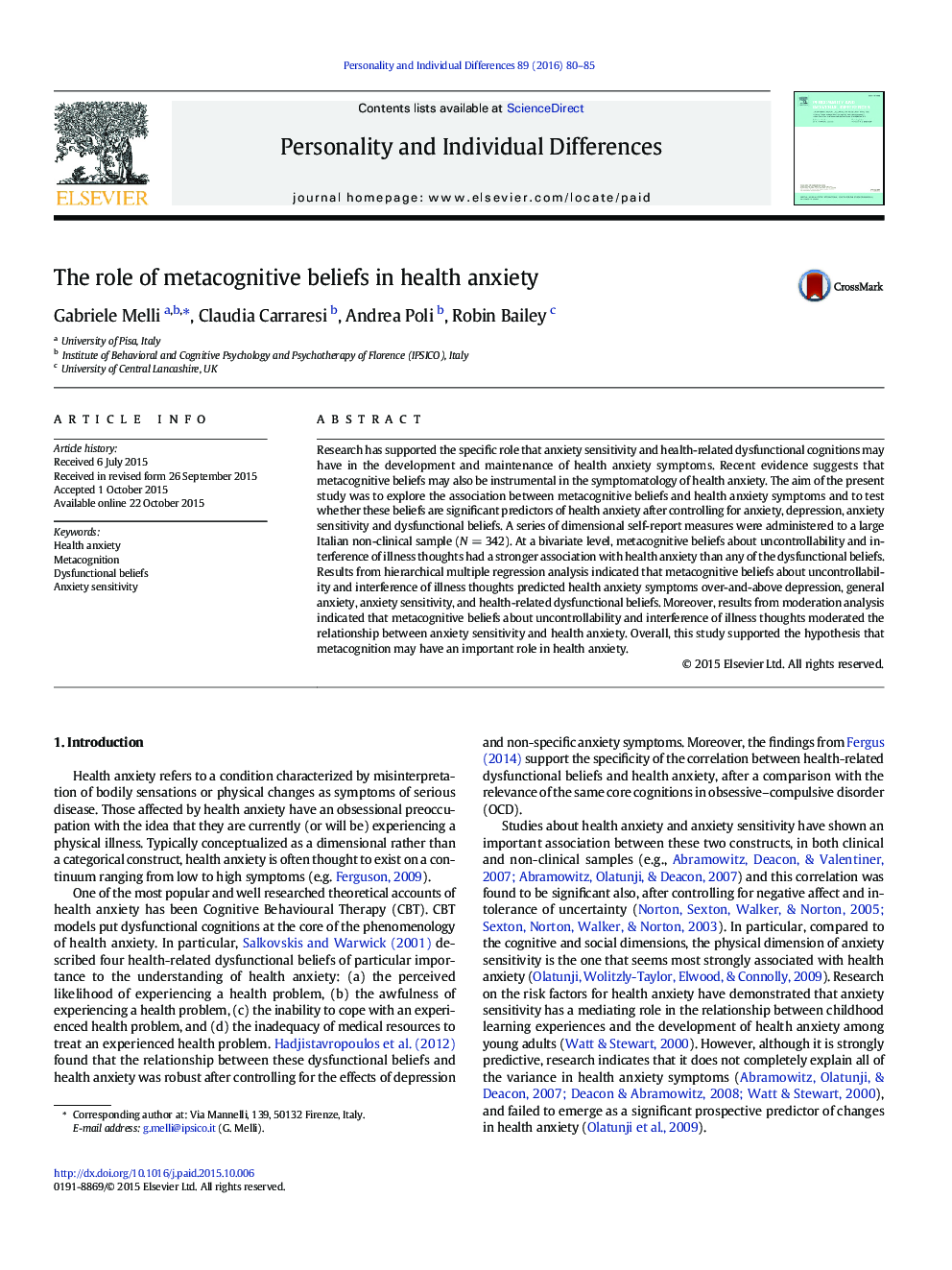| Article ID | Journal | Published Year | Pages | File Type |
|---|---|---|---|---|
| 7250692 | Personality and Individual Differences | 2016 | 6 Pages |
Abstract
Research has supported the specific role that anxiety sensitivity and health-related dysfunctional cognitions may have in the development and maintenance of health anxiety symptoms. Recent evidence suggests that metacognitive beliefs may also be instrumental in the symptomatology of health anxiety. The aim of the present study was to explore the association between metacognitive beliefs and health anxiety symptoms and to test whether these beliefs are significant predictors of health anxiety after controlling for anxiety, depression, anxiety sensitivity and dysfunctional beliefs. A series of dimensional self-report measures were administered to a large Italian non-clinical sample (NÂ =Â 342). At a bivariate level, metacognitive beliefs about uncontrollability and interference of illness thoughts had a stronger association with health anxiety than any of the dysfunctional beliefs. Results from hierarchical multiple regression analysis indicated that metacognitive beliefs about uncontrollability and interference of illness thoughts predicted health anxiety symptoms over-and-above depression, general anxiety, anxiety sensitivity, and health-related dysfunctional beliefs. Moreover, results from moderation analysis indicated that metacognitive beliefs about uncontrollability and interference of illness thoughts moderated the relationship between anxiety sensitivity and health anxiety. Overall, this study supported the hypothesis that metacognition may have an important role in health anxiety.
Related Topics
Life Sciences
Neuroscience
Behavioral Neuroscience
Authors
Gabriele Melli, Claudia Carraresi, Andrea Poli, Robin Bailey,
